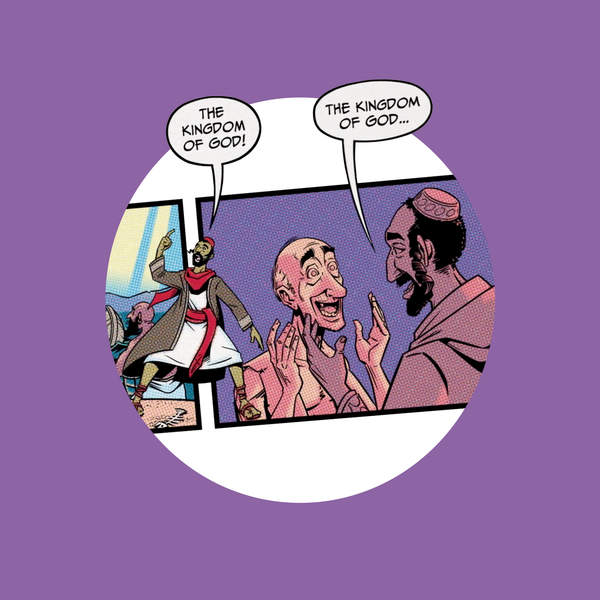
Prophets as Provokers
Welcome to episode two in our series on How to Read the Prophets.
Episode Chapters
Show Notes
Welcome to Episode 2 in our series on How to Read the Prophets.
In the introduction, Tim says that the books of the prophets can be set up in different ways, but in most cases they are anthologies. These are the greatest hits or most important points of the prophets.
There are five parts to this episode where Tim outlines several buckets or themes that are important to understand when reading the prophets.
(6:00-25:00) Introduction
(25:00-33:00) Bucket 1: Accusations
(33:00-37:00) Bucket 2: Repentance
(37:00-52:00) Bucket 3: Day of the Lord Announcements
(52:00-end) Conclusion
Biblical prophecy frequently deals with the following themes:
Accusations that Israel and the nations have rebelled against Yahweh.
Israel/Judah has (1) broken the covenant, (2) worshiped other gods, (3) allowed social injustice, and (4) made alliances with the foreign nations. The covenant lawsuit is the key rhetorical device. And the key metaphor is idolatry as adultery. So the nations are accused of injustice, cruelty, and arrogance.
A second bucket or theme is the calls for repentance and admonition to turn from wicked ways and return to faithful obedience to Yahweh. The prophets call for religious devotion to Yahweh alone and no other gods. They also call for social justice and care for the most vulnerable (widow, orphan, immigrant).
The third theme is the announcements of the Day of the Lord that will address injustice and rebellion. This refers to historical events that God will use to judge evil and vindicate the righteous, all leading up to the great future day when God will do this for all creation—a cosmic “house-cleaning.”
The bad news the prophets deliver is that Yahweh will bring his justice against human rebellion. Because of human hard-heartedness, future punishment becomes inevitable. The punishment will be upon Israel and Judah, resulting in disaster, defeat, and exile upon individual nations (especially Assyrian, Babylon, Egypt) and upon all nations.
The good news is that Yahweh will bring about the restoration of his covenant people on the other side of exile. This is a hope for a righteous remnant. The prophets say that God will preserve a faithful remnant, an important minority who remain faithful. There is hope for restoration from exile (captivity), and God will restore their “fortunes.” Finally, there is hope for a new covenant. Yahweh will renew his covenant with his people.
The prophets say that the Kingdom of God will appear and Yahweh will establish his peaceful, universal Kingdom over all nations, ruled by the future messianic King.
They use the imagery of a new temple, new Eden, and new Jerusalem to represent God’s personal presence that will permeate his people in a new cosmic temple.
Helpful tips: How to Read the Prophets
Look at the first sentence of the book to see when the prophet lived, then go read the corresponding section of 1-2 Kings to get the context of the prophet’s day.
Pay attention to the three main themes and how they connect to the book’s design. Some prophets put all their poems of accusation together (as in Ezekiel 3-24), while others weave poems of accusation and of future hope together (see Isaiah 1-2).
These books are mostly poetry, so read slowly and thoughtfully. They use tons of metaphors, so pay attention to repeated words and images.
Isaiah uses metaphors from the plant world more than any other prophet (vines, trees, branches, stumps, flowers, grass) and often in creative ways to make different points (See Isaiah 11).
Key Insights from the prophets:
God loves justice. Israel had been called to a higher level of justice than the nations around them, especially in the treatment of their land and the poor (See Isaiah 1:10-20).
God gets angry at evil. The prophets give a lot of space to God’s exposure of evil among Israel and the nations. It’s intense, but it reveals how much God cares about the goodness of his world (see Hosea 13).
God has hope for our world. He refuses to let Israel’s sin get the last word, and so all the prophetic books contain profound images of future hope and restoration for God’s people and for the entire world (see Isaiah 11:1-9).
Show Produced by:
Dan Gummel
Music:
Defender Instrumental, Tents
Moonlight Sonata, Beethoven
Look, KV
Ocean, KV
Saturdays, Lakey Inspired
Yesterday on Repeat, Vexento
Resources:
Exploring the Old Testament: A Guide to the Prophets by J. Gordon McConville
The Prophets by Abraham Heschel
The NIV Compact Bible Commentary by John Sailhamer
Read the Bible for a Change by Ray Lubeck
Scripture References
Referenced Resources
Interested in learning more? Check out Tim's extensive collection of recommended books here.
Get the BibleProject app for access to our entire library of resources in one place.
